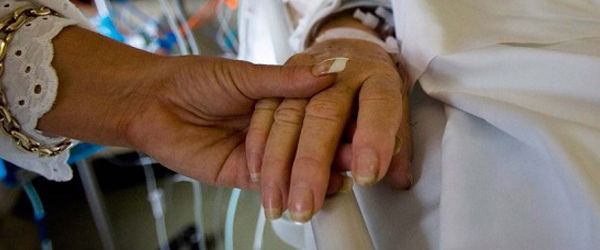This is not your mother’s (or your father’s) employment market.Nor are the ways to actually get a job these days anything like it was for them. The scarcity of jobs and abundance of people out of work, combined with 21st century electronic communications and the process employers now use to find new hires, make it necessary for job seekers to depend less on the tried-and-true resume and more on creative ways to get themselves noticed.Recognizing these needs — of both those who are just entering the job market and those who are re-entering the market after a layoff — parishioners Terry Stallcop and Suzanne Freiberg of St. Julie Billiart in Newbury Park founded the parish Employment Ministry. Stallcop, a former businessman, and Freiberg, a professional in the field of career transition and career management, combine their talents to offer new information and awareness to the un- or under-employed. Some of the information surprises those who expected to find a job and stay there indefinitely.“Statistics from the Department of labor indicate that the average person is going to have eleven jobs between the ages of 18 and 46,” Freiberg says. “This is not a world that most of us are used to working in, and especially challenging for younger people, too. When it comes to planning a career and finding a job, what used to work doesn’t anymore.”As sobering as this might seem to a job seeker, Freiberg and Stallcop coach and encourage those who come to the Employment Ministry with perspectives that integrate faith, reason and best business practices to boost their chances of landing a good job. In this process they go beyond the current trend of looking for jobs online, which can be exhausting and discouraging when a person sends out hundreds of resumes and rarely gets even an acknowledgement, much less an actual job.Freiberg admits that only about 4 percent of people searching and applying online actually find jobs from the internet. While she acknowledges that internet searching can be useful and helpful, she says that is only half of a good approach.“You have heard the old adage, ‘it’s not what you know, but who you know?’ Eighty percent of the jobs that are found now are through networking,” Freiberg asserts. “The more you network with others, you increase your chances exponentially for finding a job.” Ideally, a person does both internet searching and networking to maximize their visibility.Employment Ministry at St. Julie’s involves a six-week program of both the mechanics of job searching and marketing, led by Stallcop, and then the Gifted Vocation Program, led by Freiberg, which integrates faith and spirituality in assessing one’s God-given talents and gifts and how those can be integrated into career planning. In the nearly 18 months that the ministry has been in existence, almost 90 percent of its participants have found meaningful work.Freiberg and St. Julie’s pastor, Father Paul Hruby, were both featured speakers at the White House Forum for Employment Ministries and Job Clubs which took place in Washington, D.C., in September. Gathered with more than 100 church leaders of many faiths from around the country, they shared from St. Julie’s Employment Ministry the value of including faith and an individual’s awareness of their unique gifts, in addition to the important role of the church and parish community in assisting unemployed parishioners.“Secretary of Labor Hilda Solis has said that it is not possible for the government to find employment for everyone, and that communities need to help their members,” says Father Hruby, who addressed the White House Forum about the importance of supporting employment ministry in church, and the pastor’s key role in that support.“This is a layer of social outreach that is done with a real spiritual aspect and that makes it especially valuable,” he says. “It’s a good ministry for parishes to do, or at least to have available within a deanery or grouped with other parishes; just so it is within reach to those who need it.”Freiberg stresses that the Catholic Church is only one element of a very ecumenical ministry. The White House forum was attended by Protestant and Jewish church leaders, and the people who have gone through St. Julie’s Employment Ministry program have also been from varied faiths. The Gifted Vocation, Freiberg’s professional business and the name of the program integrated into the Employment Ministry, is based on the premise that we are already given the gifts and talents we need; we just need to realize and use them to manage our career. This can apply to any faith or religion, because the passion that comes from doing what one was created to do through their unique gifts knows no specific religion.“It is all about understanding who you are, what you value and your unique gifts,” Freiberg explains. “This helps people uncover and understand what you were called to be doing and what you think you should be doing to make a living are often quite different.”When it comes to finding a job, an advantage for an applicant can be simply a person projecting a certain sparkle because they know the job they are applying for is what they were created to do.“When someone interviews and they have passion, you can feel that energy, and that sets them apart from others,” Freiberg asserts. “And an employer who sees that passion knows that this applicant can always be taught a skill they might not already have.”

